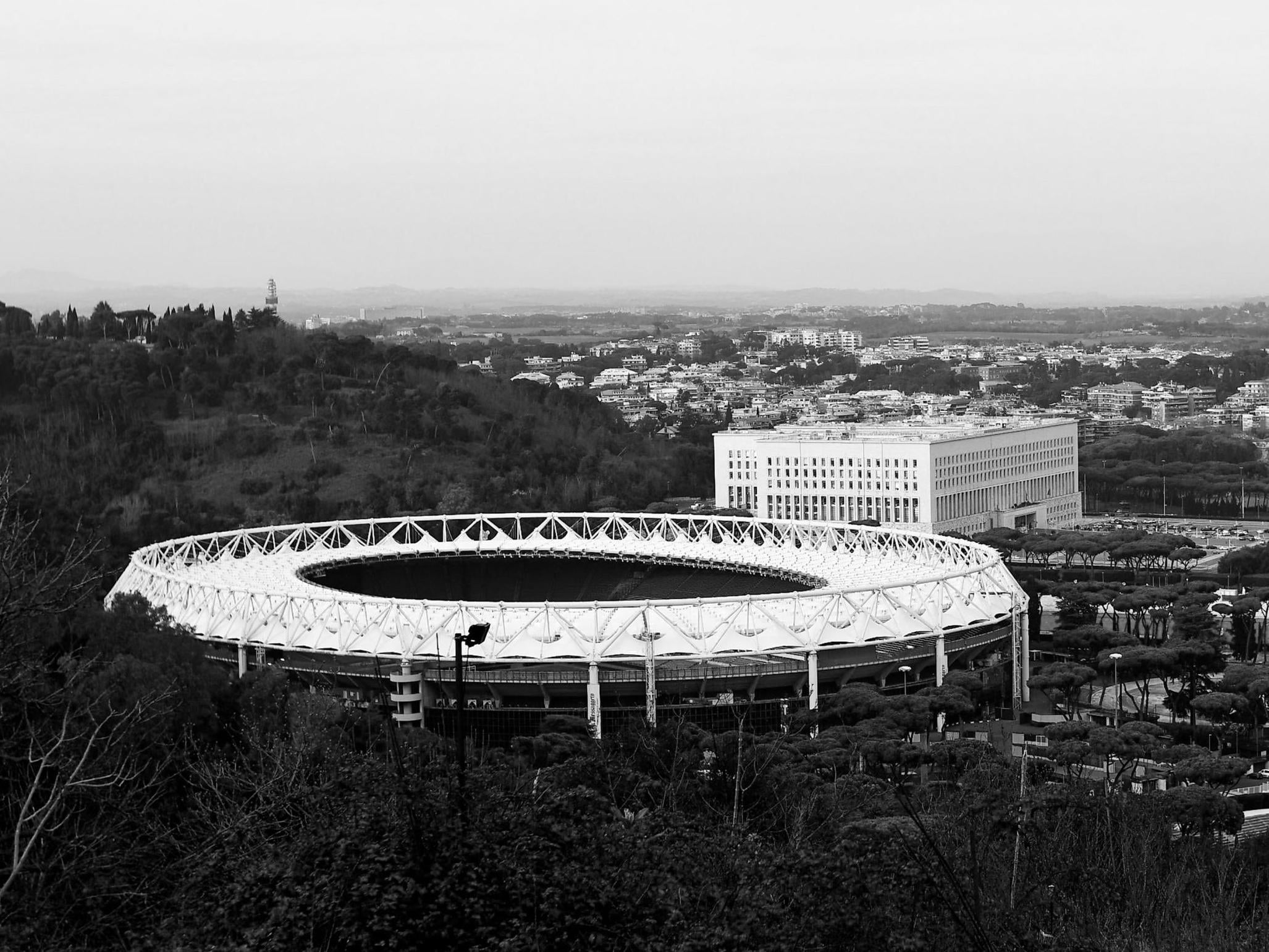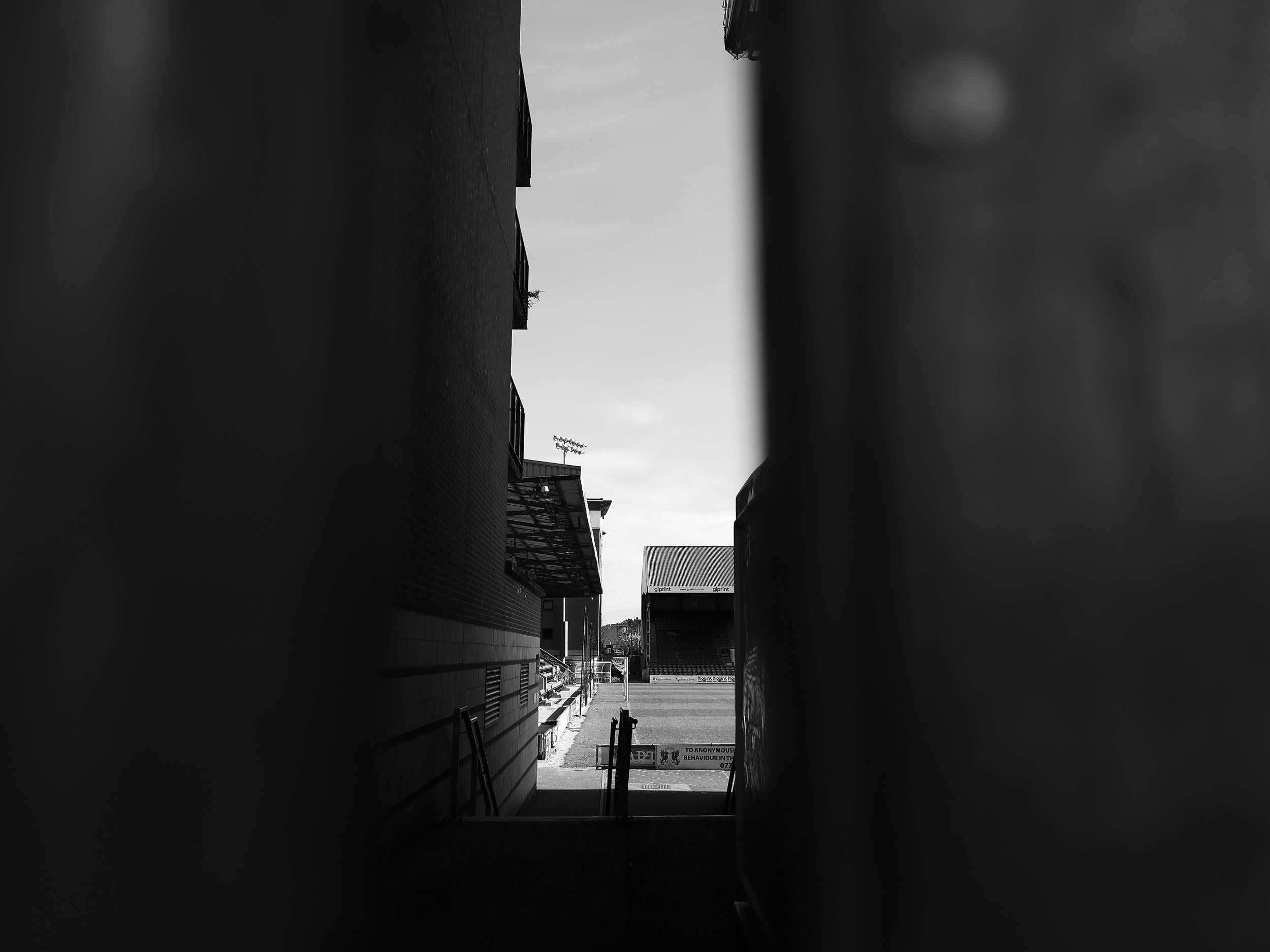How Uefa is attempting to solve the biggest crisis football has ever faced
After an extraordinary video conference, the sport’s various working groups must now enact the most imaginative and inclusive solutions to not only save this season, but ensure the future of many clubs as a whole

Your support helps us to tell the story
From reproductive rights to climate change to Big Tech, The Independent is on the ground when the story is developing. Whether it's investigating the financials of Elon Musk's pro-Trump PAC or producing our latest documentary, 'The A Word', which shines a light on the American women fighting for reproductive rights, we know how important it is to parse out the facts from the messaging.
At such a critical moment in US history, we need reporters on the ground. Your donation allows us to keep sending journalists to speak to both sides of the story.
The Independent is trusted by Americans across the entire political spectrum. And unlike many other quality news outlets, we choose not to lock Americans out of our reporting and analysis with paywalls. We believe quality journalism should be available to everyone, paid for by those who can afford it.
Your support makes all the difference.When the various parties of European football got together for an extraordinary Uefa video conference on Tuesday morning, two stances were very quickly agreed upon. The first – in the words of president Alexander Ceferin – was that this “is the biggest crisis” the sport has faced “in history”, and needs to be approached accordingly. The second was that the absolute priority of all involved was to finish the 2019-20 season – no matter when that may be.
In that sense, supporters of Liverpool, Leeds United and so many other clubs can rest a little easier. The relevant bodies will attempt to get this done.
To achieve that, however, everyone in the game is going to have to be very flexible and very patient.
“There are a lot of different scenarios, we are ruling nothing out,” Football Association chief executive Mark Bullingham said.
That was very much the theme of the day, as Uefa now sets up a series of working groups to try and resolve these many problems – not least regarding the future of financially stricken-clubs.
On that, and the potential threat of litigation depending on decisions, Bullingham struck a reassuringly inclusive tone.
“What I would say is the unity at a domestic level and international level has been fantastic. From my point of view, the football family has really come together in the discussions we’ve been having.”
This was another more encouraging undercurrent of a tough day, as Ceferin spoke of “a reset of the world football” and how “there is no time for egoistic ideas” and “no more time for selfishness”.
Time will tell on that. There were still parties privately speaking after the briefing over whether certain concessions had been offered for political reasons, and because of the expectation of some return later.
It all meant, however, that the essential first step was entirely expected: the postponement of Euro 2020 until 2021. That, according to Ceferin, naturally had “100 per cent full support of all 55 national associations, European Leagues, European Club Association and FIFPro”. He also informed Fifa president Gianni Infantino over the phone before the meeting, which effectively saw the global body accept the delay of its highly controversial new Club World Cup – an event that just “cannot happen’ next year. Again, that unity.

“We think that postponing the Euros is the only chance to get a chance to the national leagues and to all the club competitions to finish their competitions.”
That is only a chance, though, It isn’t the solution. There isn’t really a solution, since – as Ceferin added – “it’s not up to us, it’s up to the experts” – and “that terrible virus”.
That has meant that Uefa have shown more flexibility in another key area: they haven’t set a fixed date for the finals of the Europa League or Champions League. This is crucial. Although the tentative plan is still to finish the season by 30 June, it means the domestic leagues aren’t anchored to specific dates, meaning there just isn’t the same pressure.
Uefa are also trying to come up with all manner of contingency plans for what is an ever-changing situation. This is the point of these working groups, as well as to offer that flexibility of ideas
“We have Plan A, Plan B, Plan C, Plan D. Depends all on the time when we will have a chance to start playing football in Europe again.”
One of those higher-ranked plans does involve playing the Europa League final on 24 June in Gdansk and Champions League final on 27 June in Istanbul but, again, they’re provisional. Another plan is to stage the final few rounds of the competitions in those countries in what would effectively be weekend festivals of football. The very prospect, however, sounds fanciful.
Either way, it currently suits Uefa as much as the domestic leagues. They don’t want the 2020 entries on their lists of champions left blank either.
As regards to that, Ceferin insisted the continental body are against the idea of just taking the current tables as the final tables. Most leagues, for their part, want to avoid it. The English leagues certainly do. Their plan to finish the season between July and September at least seems more feasible than most. This is what these working groups are trying to figure out.
“I’ve also saw and heard some again fake news that Uefa will advise leagues to finish the championships now and decide that the winners are the ones who are number one now,” Ceferin said. “I can say that it’s not true. Our goal is to finish the leagues and we didn’t recommend anything like that to any association or any league.”
Bullingham struck a similar tone.
“From a football administrator’s point of view, both domestically and internationally, everyone is of the view that we want to get the domestic season finish and whatever point is possible. That’s the starting point for every scenario being mapped out.
“Within the context of that, clearly from our point of view, the FA Cup is incredibly important. We are talking the priority being that, whenever football can be played again, to complete the domestic season, we are talking about both the league and the FA Cup.
“Clearly, things get much more complicated after 30 June but I would say nothing is off the table right now in the discussions being talked about both internationally and domestic level.”
The biggest complication after 30 June is financial, and not just about contracts. It would mean many clubs going months without games, and likely going out of business.
Bullingham said this has already been discussed at government level.
“It’s also a big topic for government, government have repeatedly asked us to keep them informed of clubs that are having financial difficulties.
“There are some clubs particularly at the lower end of the pyramid that are going to struggle. We are having lots of conversations with both government and other football stakeholders about that. From our point of view we’re a not-for-profit; clearly the money we raise goes back into the game, we are definitely going to take a big financial hit, and we will therefore be able to put less back into the game at all levels.”

Ceferin struck a similar tone, as he admitted the cost to Uefa will go to “hundreds of millions of euros”, but insisted reports they asked domestic leagues for money to delay the end of the season as more “fake news”.
“We are all the same in the same situation here and we have to help each other. We will form two working groups tomorrow. One working group will deal with the calendar and the other working group will deal with the financial impact. And when we see what kind of financial impact are we talking about, then we will see how to help. But yes, some clubs, some leagues will have serious problems. But you shouldn’t forget about national associations because the sole source of revenue of national associations is mainly Uefa.”
Along those lines, the Nations League final for next year has been postponed, and “no decision has been reached”.
“So it will be a bit hard in a few months or years, but we will step together. And as I said, I’m very optimistic and we will solve the situation.
“I don’t know what will happen concerning the football calendar, but the fact is that what I saw today is that this situation brought us together.
“If anything, then we saw that our ecosystem is fragile, that it’s one ecosystem, that we have to act responsibly and that we have to help each other.”
This was the vibe of the day. They still have to – together – figure out what next.
This is indeed the biggest crisis the game has ever faced. It may require the most imaginative and inclusive solution.
Join our commenting forum
Join thought-provoking conversations, follow other Independent readers and see their replies
Comments